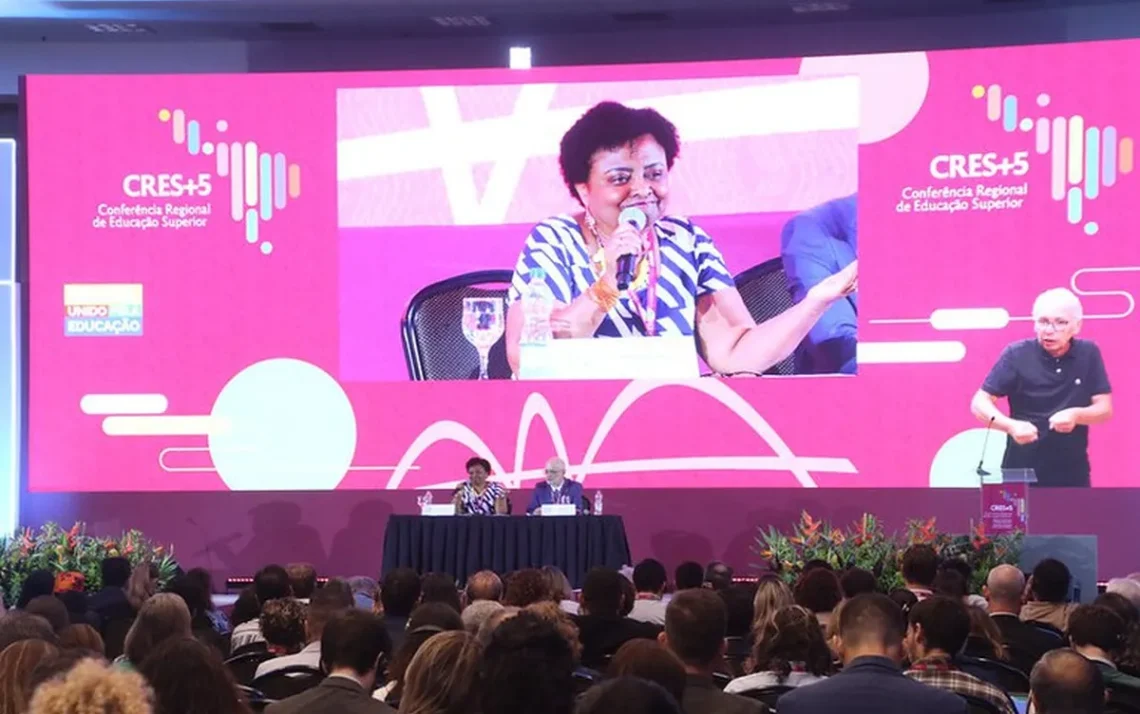Discussing higher education in Latin America and the Caribbean with emphasis on equity, diversity, and regional integration. Transformative and inclusive debate on CRES+5.
Education plays a crucial role in shaping individuals and societies. Through education, people acquire knowledge, develop skills, and form critical thinking abilities. It is a fundamental human right that empowers individuals to reach their full potential and contribute to the advancement of society.
Higher education is a valuable component of the educational journey, providing specialized knowledge and expertise in various fields. Learning is a lifelong process that goes beyond the classroom, encompassing practical experiences and continuous self-improvement. Embracing education and knowledge is key to personal growth and professional success.
Building higher education for the 21st century with respect for diversity
Creating educational opportunities within higher education that encompass the vast ethnocultural diversity and various social backgrounds of Latin American and Caribbean countries involves promoting ‘emancipatory regional integration.’ Professor Nilma Lino Gomes, former Minister of Women, Racial Equality, and Human Rights, introduced this concept during her keynote address on the second day of CRES+5, the follow-up meeting to the III Regional Conference on Higher Education in Brasilia.
Nilma emphasized how the intricate interplay between diversity, social classes, and political relations in the region perpetuates outdated educational standards and a colonial culture that no longer aligns with the demands of the 21st century. This perpetuation of inequalities in higher education hinders the inclusion of diverse forms of knowledge, such as traditional knowledge from indigenous and black communities.
In striving for a more equitable education system, several countries in the region have implemented affirmative policies, like Brazil’s quota system for marginalized groups. However, progress in this regard has been sluggish.
Challenges in Advancing Regional Integration for Inclusive Education
Advancing regional integration in Latin America and the Caribbean to achieve a more inclusive education system poses challenges across various sectors, including politics, economics, culture, and education. Nilma Gomes underscored the necessity of democratic governance in developing a modern education model, especially given the ideological polarization prevalent in society.
She noted that the integration discourse is susceptible to manipulation by conservative factions seeking to impede progress. This challenge intersects with Brazil’s democratic recovery and ongoing higher education debates as the country grapples with its colonial past and societal divisions.
Promoting Social Transformation and Inclusion in Higher Education
Nilma identified the coexistence of market fundamentalism, religious fundamentalism, hegemonic media, and political polarization as impediments to social transformation and true inclusion in the education sector. Upholding principles of diversity, equity, and social justice remains paramount amid societal tensions.
CRES+5, organized by Brazil’s Ministry of Education, in collaboration with UNESCO-IESALC and Enlaces, aims to address these challenges. The conference targets a diverse audience ranging from academics to government representatives and seeks to foster dialogue and collaboration in advancing higher education in the region.
Preparatory Activities and Methodologies of CRES+5
Prior to the conference, various open debates were held to engage stakeholders in shaping the event’s agenda. These discussions, complemented by virtual consultations, focused on the thematic axes of CRES+5 to inform policy decisions and program implementation. The preparatory activities in different cities have laid the groundwork for a comprehensive conference program that aims to drive positive changes in higher education.
MEC’s Communications Department has been instrumental in organizing these initiatives, underscoring the importance of inclusive and transformative education practices across Latin America and the Caribbean. Through collaboration and innovation, CRES+5 seeks to redefine higher education standards and foster true inclusion and social justice on the continent.
Fonte: © MEC GOV.br






Comentários sobre este artigo